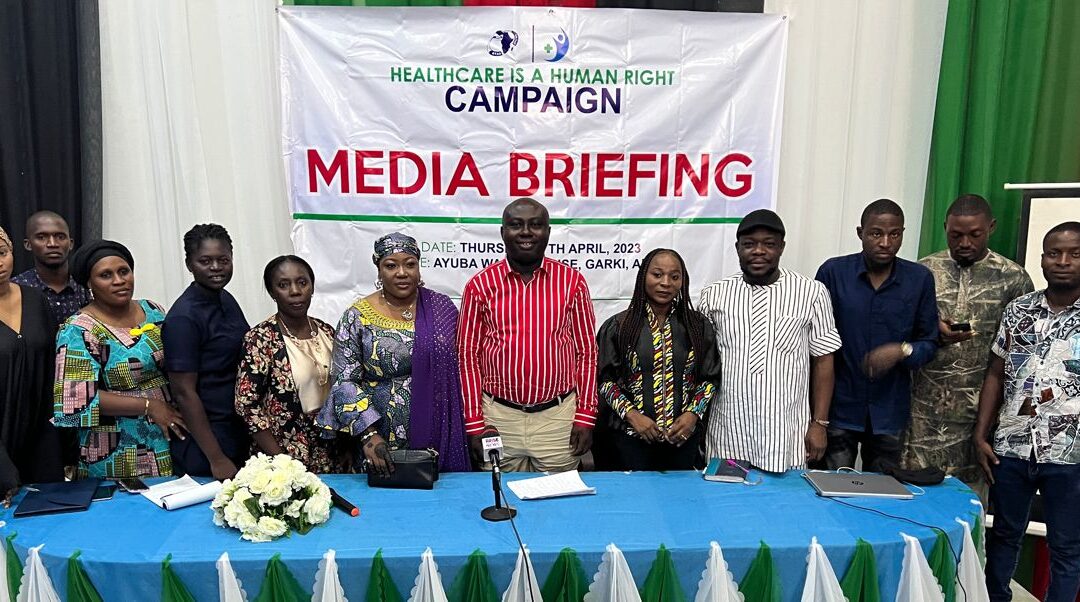A regional health care rights campaign led by the Organization of Trade Unions of West Africa (OTUWA) saw some success in Nigeria this month, where the federal government announced a disbursement of almost $70 million to bolster the country’s health infrastructure.
The funds will be delivered through the country’s Basic Health Care Provision Fund, which delivers essential but often out-of-reach health care service to Nigeria’s citizens—more than 90 percent of whom work uncertain, poorly paid informal jobs.
“We celebrate with our Nigerian partners and will continue to support unions that are demanding more investment by governments in the health of their citizens,” says Solidarity Center Africa Regional Program Director Christopher Johnson.
In Nigeria, where out-of-pocket health care payments were reportedly among the highest in the world in 2023, the campaign is supported by the International Federation of Women Lawyers (FIDA), the Medical and Health Workers Union of Nigeria (MHWUN), the National Association of Nigeria Nurses and Midwives (NANNM) and labor federations Nigeria Labor Congress (NLC) and Trade Union Congress of Nigeria (TUC).
In the region, OTUWA’s “Health Care Is a Human Right” campaign is supported by OTUWA’s affiliates together with many of their health-sector unions. A 2020 survey of 700 health workers living in Gambia, Ghana, Nigeria, Senegal, Sierra Leone and Togo provides a window into the region’s health-sector shortcomings and presents a raft of recommendations for ensuring the protection of health worker rights and effective, accessible health care for all.
OTUWA’s “Health Care Is a Human Right” campaign, launched in Abuja in March 2020, unites OTUWA affiliates in a fight for equal and fair health care access for all who live within the ECOWAS region. The campaign includes collection of health data and advocacy with national and continent-wide African Union legislators and policymakers.
The region’s signatory governments are required by ECOWAS Fundamental Principles to promote and protect human rights in accordance with the African Union (AU) Charter on Human and Peoples’ Rights—including provision of social protections such as health care.
Like many other African countries, Nigeria’s government is struggling to provide essential services to its citizens in the context of mounting national debt and illicit financial flows. Curbing multinational tax dodging, government corruption and other criminal activity is essential, say unions, because doing so could cut by almost half the $200 billion annual financing gap for achieving the UN Sustainable Development Goals, according to the UN Conference on Trade and Development (UNCTAD). The 2023 SDG report noted that 381 million people, or almost 5 percent of the world’s population, were pushed into extreme poverty in 2019 by out-of-pocket health expenditures.
OTUWA represents trade union national centers in the 15 West African countries comprising the Economic Community of West African States (ECOWAS).

